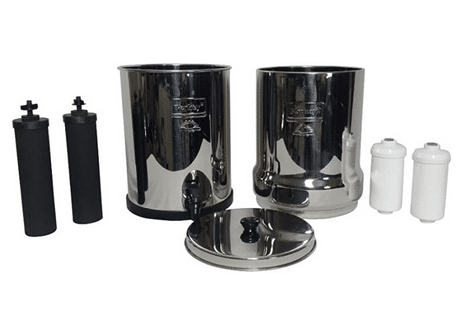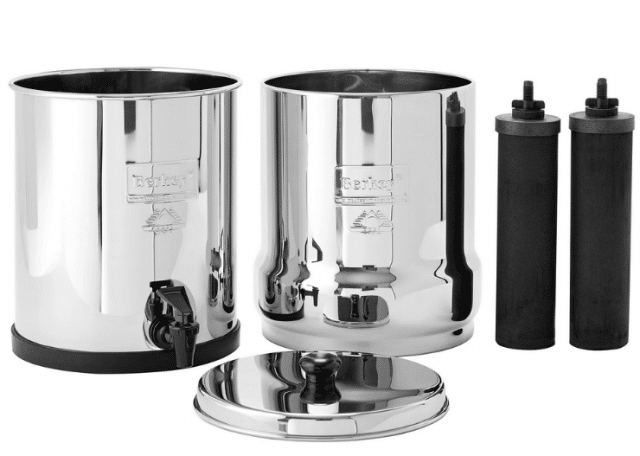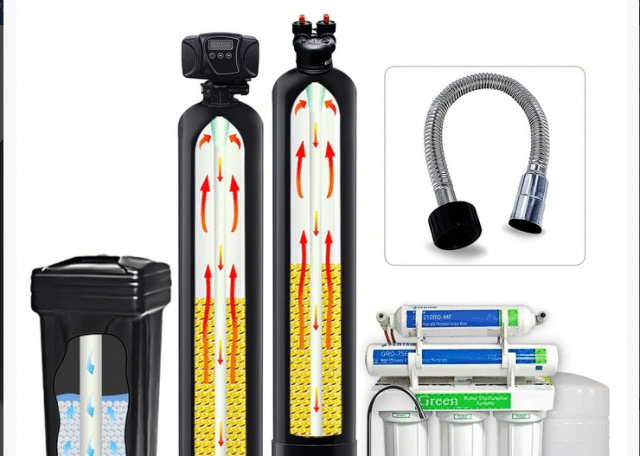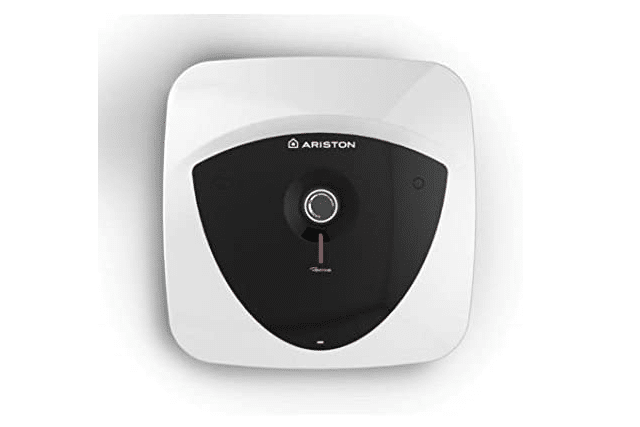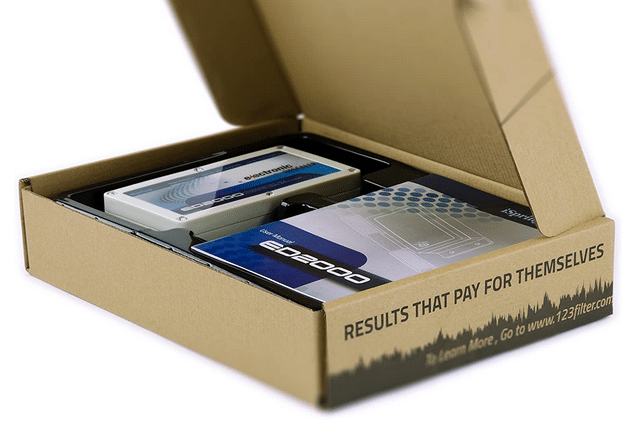Berkey vs Zerowater Comparison And Reviews 2022
Both, for instance, promise to make the water look clear. They also claim good effect at removing any odors or tastes that may be in the water.
Water that looks unclear is always unpleasant to drink. Similarly, water that has odors and/or tastes is not pleasant.
The filters try to make it better, by turning it colorless. They also make it better by removing any odors or unnatural tastes.
Further, both Berkey and Zerowater remove unwanted chemicals from the water. Water that has chemical impurities can be unsafe to drink. So they make it safer, by removing those chemicals.
At their cores, both have membranes through which the water being filtered passes. The impurities in the water get trapped there. The person using the filter, therefore, acquires clean and pure water.
Read: How does a berkey water filter work
Berkey Water Filter vs Zero Water
There are some important differences between the Berkey and the Zerowater filter. It is those that form the basis of our Berkey vs Zerowater comparison. The most basic one is in their appearance.
On the one hand, the Berkey comes in the form of two chambers. Those are joined at the center of the system: with one on top and the other one at the bottom.
Zerowater, on the other hand, comes in the form of a simple pitcher.
Moreover, while Berkey promises to remove up to 200 contaminants, Zerowater makes a more modest promise.
With the latter, you remove a more modest 23 impurities. But then again, Zerowater removes them very thoroughly. It is so thorough that it leaves 000 TDS (Total Dissolved Solids).
Yet another difference is that Zerowater uses a 5-stage filtration process. On the other hand, Berkey seems to use 2-stage filtration.

But before going further with the Berkey vs Zerowater comparison, we need to first understand whether water filters are useful.
Are water filters useful?
There are people who say that tap water is quite safe, and therefore water filters are superfluous. But is that true? To find the answer, we need to look at where tap water comes from, and how it reaches us.
On where tap water comes from, it is common knowledge that this water is usually abstracted from dams or springs.
It, therefore, contains many impurities, right from its source. True, it may undergo a bit of treatment. But that is usually basic. And it doesn’t even pretend to remove all impurities from the water.
Further, once the water comes out of the treatment plant, it goes through pipelines to reach us. This often means traveling over tens, hundreds, or even thousands of kilometers in pipes.
These pipes are prone to rust. They also tend to have sediment, silt, sand, and other impurities of that ilk. Therefore the water gets impurities in the pipe before it reaches us.
Water filters are useful so far as they can remove these impurities from the water before we drink it.
You can use a water quality meter to compare water that has gone through a filter and water that hasn’t. You then see that the water that has gone through a proper filter has better quality.
That is as per the water quality meter readings.
In so far as the water filters can truly improve water quality, we can only conclude that they are useful.
After knowing the usefulness of water filters, we can now proceed to examine both the Berkey and Zerowater filters deeply.
Berkey Water Filter
The Berkey water filter has two chambers. Those are really tanks, made of stainless steel. One is placed on top of the other. Inside the Berkey filter are Black Berkey purification elements.
Within those elements are micropores. It is into those pores that the impurities in the water that is being filtered get trapped.
These pores trap not only big impurities like silt, sand, and sediment, but also micro impurities like bacteria.
The Berkey is able to remove almost all known impurities. The list of things the Berkey can remove runs into hundreds. That is up to 200, to be specific.
The Berkey can hold much water. This capacity differs from model to model. The biggest model is the Berkey Crown. It can bear up to 6 gallons.
Next to it is the Imperial Berkey, with a 4.5-gallon capacity. Others are Travel Berkey (1.5 gallons), Berkey Light (2.75 gallons), and the Royal Berkey (3.25 gallons capacity).
The highly popular Big Berkey model comes with a 2.25-gallon capacity. All these filter models work in the same manner. The difference between them is in terms of their tank capacities.
The Berkey’s biggest strengths include the high number of impurities it removes and its long filter life. With regard to filter life, the Berkey is impressive. It is the kind of system you can go for years before needing to buy new filters for. Each Berkey comes with two water impurity removal elements. Those are known as Black Berkeys. Each of these may retain power for up to 4 years. Therefore the 2 you get the first time can easily give you a total of 8 years’ service.
The Berkey comes with standard spigots. These serve as the taps through which you can draw out the filtered water.
Within the Berkey system, the power to filter comes from gravity. The water enters the system at the top. The force of gravity pulls it downwards.
It then encounters the filter elements. Still, under the pull of gravity, the water flows down. It flows through the purification elements which entrap any impurities in it.
And it flows further onto the spigot, from where a user can draw it.
The main material with which Berkey filters’ chambers are made in stainless steel. This serves a couple of purposes. Firstly, it makes the filters less prone to rusting.
And secondly, it ensures that the water doesn’t get contaminated within the filter system itself. The fact that the chambers in Berkey filters are made of steel also translates into durability.
Read more on Big Berkey Water Filter System Review 2021.
Pros
- This filter’s elements maintain potency for a long. That is up to 4 years.
- It filters out more impurities. That is up to 200.
- This system delivers filtered water faster.
- It comes with a long warranty.
- Changing the filter elements in this system is easy.
Cons
- This filter’s elements are costlier. But they also last longer.
- It occupies more space. That is because it is a 2-chamber filter system.
Zerowater Filter
Zerowater filter promises to deliver water with 000 TDS (Total Dissolved Solids). This filter comes in the form of a pitcher. Inside the pitcher is the filter element. That traps impurities from water. So the water that requires filtration passes through the filter element. All the impurities in it then get trapped.
This filter’s best points include its compact design. Others are its thorough filtering and its easy installation.
With regard to the compact design, you have to remember that Zerowater comes in the form of a pitcher. That takes very little space, especially when you compare it to Berkey’s two chambers.
With regard to thoroughness, it is able to leave the water with 000 TDS. And it actually comes with a water quality meter. With that meter, you can measure its effect on a day-to-day basis.
Within the Zerowater filter, the purification elements come with ‘threads’. Thus it is different from other filters where the elements just snap onto slots available for them.
That design (where elements just snap onto slots made available for them) often results in leakage.
But here, you get to tighten the elements through threads. Therefore there is no room for leakage.
And this is important because the last thing you want in a water filter is leakage.
Leakage would bring the chance of water that has been filtered mixing with water that hasn’t.
Just as is the case with the Berkey filter, the Zerowater filter utilizes gravity power. The water enters the system at the top. It then flows downwards, until it encounters the filter media.
Upon encountering the filter media, any impurities in it are entrapped. The pure water flows further down, to the tap/spigot through which it can be drawn.
See how to use a zero water tester
Pros
- It is able to filter water thoroughly, leaving 000 TDS (Total Dissolved Solids)
- The filter is compact in design, and therefore requires very little space
- Installation for this water filter is easy
- It comes with a water quality meter
- Its filter elements are cheaper
Cons
- Zerowater filter elements have relatively shorter life (at 3-5 months or 20 gallons)
- This filter removes a modest number of impurities (around 23)
Buying guide: Which Between Berkey and Zerowater is the Better Filter?
Most of the people doing the Berkey vs Zerowater comparison simply want to know which of the two is better. The truth is that each of these two water filters has pros and cons.
For instance, while Berkey filters retain power for up to 4 years, Zerowater filters only retain power for 3-5 months. Therefore if you want a system for which you won’t have to be changing filters frequently, Berkey would be better.
On the other hand, Zerowater is able to remove impurities in water very thoroughly.
It leaves 000 TDS (Total Dissolved Solids). Conversely, the Berkey seems to focus mostly on the number of impurities it can remove: up to 200.
Therefore if you want a filter that is so thorough it leaves 000 TDS, Zerowater would be ideal for you. If you want a filter that removes more types of impurities, the Berkey would probably be ideal.
Further still, Zerowater takes the form of a pitcher – which occupies very little space. The Berkey takes the form of two chambers, one on top of the other. That takes quite some space.
Therefore if you want a smaller or more compact water filter, Zerowater would be more ideal for you.
Zerowater filter comes with a water quality meter, while Berkey doesn’t seem to. Therefore if you prefer a filter that gives you a good way of measuring results, Zerowater would probably be ideal.
Which features matter in a water filter?
The level to which a water filter is able to remove dissolved solids from water is an important feature. The vendors usually quote this in TDS units (where TDS stands for Total Dissolved Solids).
In this respect, for instance, Zerowater delivers 000 TDS. Zerowater’s vendors are very confident of their products in this regard. So confident that they actually ship each of their filter systems with a water quality meter!
The lifespan of a filter’s impurity removal elements (or cartridges) is another key feature. The vendors usually quote this in months or years.
Alternatively, they quote it in terms of the gallons the filter is able to purify before it wears out. For Berkey, this is around 2.5 years, and it can go up to 4 years.
For Zerowater, it is 3-5 months. But then again, while the Berkey filter lasts for long before wearing out, it is also slightly more costly. Conversely, while Zerowater filter elements are cheaper, they also wear out much faster.
The amount of water a filter can deliver per minute is yet another key feature. The vendors usually quote this in gallons. In cases where the filter system is able to store water, the tank’s capacity becomes relevant here.
In this regard, for instance, we see that the Big Berkey has a capacity of 2.25 gallons. Other Berkey models are within that range – with Travel Berkey having the capacity for 1.5 gallons and Imperial Berkey 4 gallons.
The material with which a water filter is made matters. So does the mechanism via which a water filter works.
How to use a water filter
Firstly, you need to prime the filtration elements. Then you need to install them on the filter. In the case of the Berkey, that is a question of first placing them on the mounting base. Then you twist to lock them in place.
In the case of Zerowater, the filter elements come with threads. Those ‘threads’ are similar to the ones we find in screws. So you need to identify the spot where they are supposed to go.
Then screw them in, until the installation is tight and there is no room for leakage.
The next step is to connect the water filter to the faucet. This is the faucet where the water to be filtered is to come from.
Thereafter, you need to allow the water to enter the filter. This is usually just a matter of opening the tap that controls the faucet connected to the filter.
You then need to allow the water to go through the filter elements. It is at this stage that impurities are removed.
You can thereafter open the spigots through which the system releases filtered water. Then collect the water that has been filtered with a glass.
FAQs
What is the use of a water filter?
The use of a water filter is to make water more pleasant and safer to drink. This is something the filter does by removing impurities from the water.
How long does a water filter last?
The life of a water filter depends on its design as well as the type of water it filters. Filters that have to sieve water with more impurities tend to last less long.
Conversely, those that have to sieve cleaner water last longer. Some filter elements last year. That is up to 4 years as is the case with those in the Berkey system.
Others only last months. That is sometimes as few as 3-5 months, as is the case with those in the Zerowater system.
How does a water filter work?
The filter usually contains carefully calibrated pores. The pores are big enough to allow pure water molecules to pass through. But they are also small enough to trap impurities in the water.
Therefore the filters work like sieves. They allow the pure water to pass through while trapping the impurities.
What impurities does a water filter remove?
A filter should be able to at least remove sediment and silt. It should also be able to remove sand and rust from water. There is also an expectation for a modern filter to be able to remove chlorine from the water.
Some go as far as removing bacteria as well. In short, a proper filter should remove all impurities that make water to be unsafe or unpleasant to drink.
What exactly is removed varies from filter to filter. The Berkey filter, for instance, removes up to 200 impurities. Zerowater, on the other hand, removes around 23 impurities.
But the latter (Zerowater) removes the impurities very thoroughly. It works so well that the water is left with 000 TDS (Total Dissolved Solids).
Do water filters come with warranties?
Some water filters do come with warranties. Others don’t. So it varies from vendor to vendor. For instance, both Berkey and Zerowater filters come with warranties. Berkey’s warranty (at 6 months) is somewhat longer than the one for Zerowater (at 90 days).
Conclusion
Both Berkey and Zerowater are decent water filters. The Berkey is ideal if you want a system where you won’t have to be changing filters too often.
With the Berkey, you can go for as many as 4-8 years without the need to purchase new filters. The Berkey is also ideal if you want a system that removes many (200+) impurities from water.
Zerowater, on the other hand, is ideal if you prefer a filter that is very thorough.
It leaves the water it filters with 000 TDS (Total Dissolved Solids). Zerowater is also ideal if you prefer a filter system that is compact and which therefore occupies very little space.
Another scenario where it would be ideal is if you prefer a system whose filters are not costly… On our part, we endorse both the Berkey and Zerowater filters, because they are both good in their respective ways.


